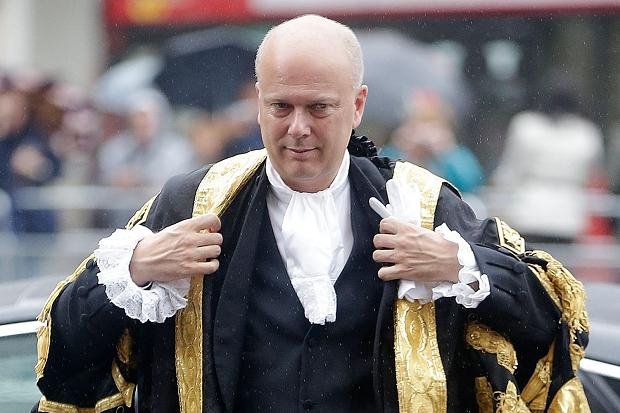MOSCOW, April 9 – RAPSI, Ingrid Burke. UK Justice Secretary Chris Grayling proposed sweeping reforms Tuesday to the legal aid system presently operating in England and Wales, including a provision that would require convicted criminals to reimburse the state for court costs and a ban on the receipt of legal aid by the wealthy, according to an official statement obtained by RAPSI.
The legal aid system presently operating in England and Wales is among the most expensive in the world, costing approximately £2 billion annually. On a per capita basis, this amounts to about twice the legal aid costs expended in Ireland, and nearly four times that spent by Canada.
The Justice Ministry explains that Grayling’s comprehensive set of proposals would serve to shave £220 million in legal aid costs by the 2018 fiscal year.
Speaking to the point of requiring convicted criminals to reimburse the state, the statement notes that Grayling has considered a variety of “ways of making convicted criminals pay for more of their criminal justice costs, which could include paying back their court costs and legal aid.”
Grayling emphasized the financial burden imposed on taxpayers: “we cannot close our eyes to the fact legal aid is still costing too much. It is not free money, it is paid for by hard-working taxpayers, so we must ensure we get the very best value for every penny spent.”
The Justice Secretary added that while fair trial rights will remain imperative, these concerns should not impede a reconsideration of how the legal aid system is presently operating. He noted that, “we’ve all heard of wealthy criminals with stashed millions getting legal aid to pay for their defence or of prisoners given legal aid unnecessarily.”
The Justice Ministry claims that approximately 200 suspected criminals with disposable incomes amounting to upwards of twice the national average currently benefit from legal aid, having consumed £3 million taxpayer pounds in the past year alone. Under Grayling’s proposals, strict new requirements would prevent the wealthy from cashing in on the system.
In his own words: “It is scandalous that suspected criminals who can easily afford to pay for their own defence have cost innocent taxpayers £3 million in just one year… Legal aid is not free - it is taxpayers' money and must be preserved for those most in need.”
Under the proposals, anyone denied legal aid based on earning a disposable income of £37,500 or more will be eligible for a hardship review to consider specific extenuating circumstances.
Other proposals would include the removal of legal aid in prison law cases that can be appropriately dealt with outside the courts via the prisoner complaint system, and the introduction of a residency test in order to keep legal aid in the hands of those most strongly connected with the UK.
The latter point is important considering the heavy international traffic enjoyed by the judiciary of England and Wales, at least among extremely wealthy businessmen and their interests.
Speaking with RAPSI on this point not long ago, a UK Justice Ministry spokesperson proclaimed: “The world's business leaders come to the UK to settle their disputes so that they can protect their hard work, ensure payments are made, contracts are enforced - allowing their businesses to grow... UK courts provide an internationally recognised guarantee of impartiality, independence and enforceability."



